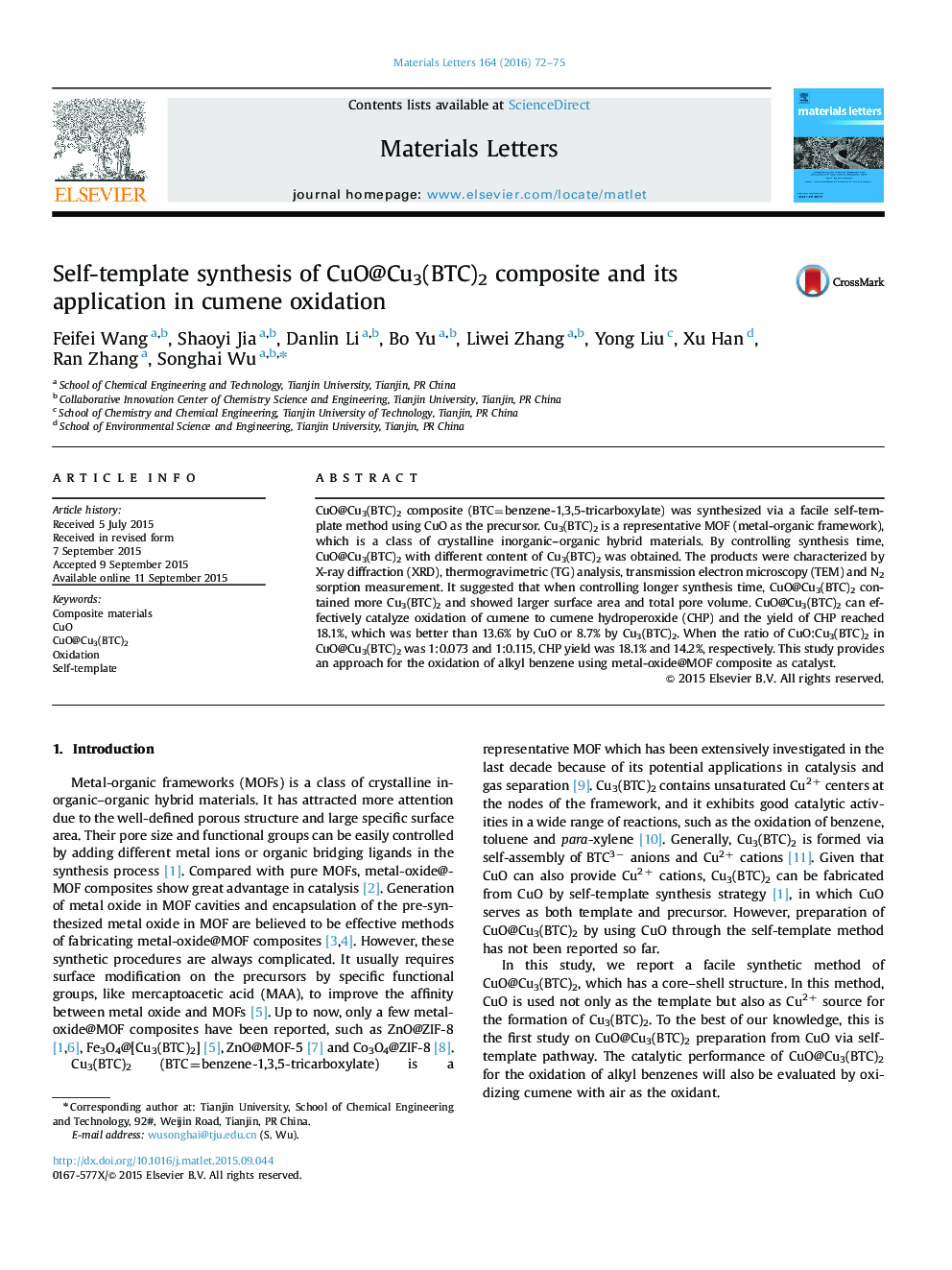| Article ID | Journal | Published Year | Pages | File Type |
|---|---|---|---|---|
| 1641871 | Materials Letters | 2016 | 4 Pages |
•CuO@Cu3(BTC)2 was generated using CuO as the precursor via a self-template method.•Different content of Cu3(BTC)2 in CuO@Cu3(BTC)2 was obtained by time control.•CuO@Cu3(BTC)2 showed good activity as catalyst in cumene oxidation.
CuO@Cu3(BTC)2 composite (BTC=benzene-1,3,5-tricarboxylate) was synthesized via a facile self-template method using CuO as the precursor. Cu3(BTC)2 is a representative MOF (metal-organic framework), which is a class of crystalline inorganic–organic hybrid materials. By controlling synthesis time, CuO@Cu3(BTC)2 with different content of Cu3(BTC)2 was obtained. The products were characterized by X-ray diffraction (XRD), thermogravimetric (TG) analysis, transmission electron microscopy (TEM) and N2 sorption measurement. It suggested that when controlling longer synthesis time, CuO@Cu3(BTC)2 contained more Cu3(BTC)2 and showed larger surface area and total pore volume. CuO@Cu3(BTC)2 can effectively catalyze oxidation of cumene to cumene hydroperoxide (CHP) and the yield of CHP reached 18.1%, which was better than 13.6% by CuO or 8.7% by Cu3(BTC)2. When the ratio of CuO:Cu3(BTC)2 in CuO@Cu3(BTC)2 was 1:0.073 and 1:0.115, CHP yield was 18.1% and 14.2%, respectively. This study provides an approach for the oxidation of alkyl benzene using metal-oxide@MOF composite as catalyst.
